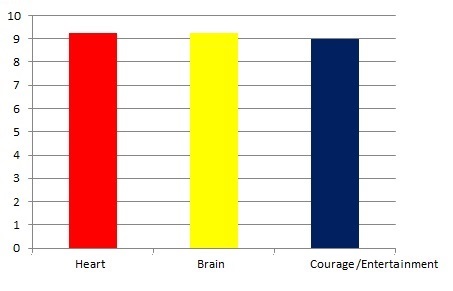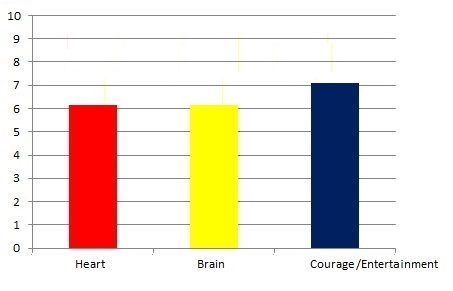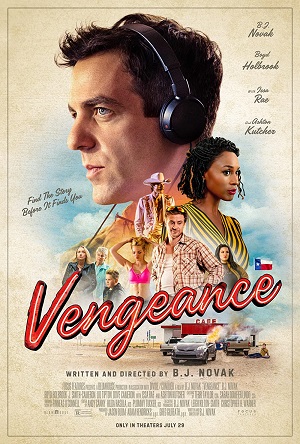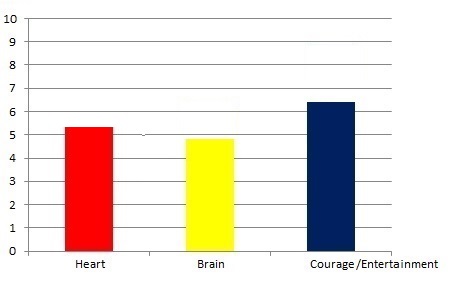
Alphabetical Menu
Chronological Menu
|
Ali & Ava  Ali (Adeel Akhtar), a British Pakistani man, still lives with his wife whom he's separated from. One rainy afternoon, as he's picking up a tenant's daughter from her school, he gives Ava (Claire Rushbrook), the daughter's a ride home, too. Ava's abusive husband recently died and she has to deal with her delinquent son, Callum (Shaun Thomas). Despite their differences, Ali and Ava spark a romance with each other. Ali & Ava is a quietly moving romance about two human beings who form a deep connection. In the tender screenplay by writer/director Clio Barnard, there's a "meet cute" moment in the car with Ali and Ava. They both seem like very nice, kind people, but they're both dealing with traumatic pasts. Ava is a grandmother who just lost her husband who was abusive toward her. Ali still greives the loss of his child who died during a miscarriage, and has yet to divorce from his wife. Both Ali and Ava's emotional baggage weighs down on them and threatens the stability of their new romance. Barnard does a great job of incorporating exposition without flashbacks or voice-over narration. She doesn't reveal Ali and Ava's emotional struggles right away, but gradually. Some of the scenes with Ali and Ava bonding feel a bit cheesy, but at least the film isn't afraid to delve into the darker moments as it progresses. This isn't a Hollywood movie nor does it try to be like one. It has the sweetness of Once and the realism of classic British kitchen sink movies from the 1960's. There's also just the right balance of humor and wit which helps to enliven the film even when it does begin to become repetitive around the hour mark. Adeel Akhtar and Claire Rushbrook bring pure, unadulterated warmth and charisma to their roles. Most importantly, they have palpable chemistry together, so you'll truly want Ali and Ava to end up together. Whether or not they do indeed end up together won't be spoiled here, but, either way, you'll be emotionally invested in both of their lives thanks to the performance. So, the film's emotional resonance comes from the performances, not so much from the screenplay. The pace moves leisurely, although at times it feels a little too slow, yet it doesn't become any less engrossing. At a running time of 1 hour and 34 minutes, Ali & Ava is warm, tender and heartfelt.
 DC League of Super-Pets  Krypto (voice of Dwayne Johnson), a Super-Dog, has the same superpowers as his owner, Superman (voice oF John Krasinski). He doesn't like that Superman flirts with Lois Lane (voice of Olivia Wilde). Lex Luthor (Marc Maron), Superman's nemesis, kidnaps Superman and the other superheroes of the Justice League, so Krypto rounds up a team of Super-Pets with superpowers, namely, Ace the pitbull (voice of Kevin Hart), Chip the squirrel (voice of Diego Luna) squirrel, PB the pig (voice of Vanessa Bayer), and Merton the turtle (voice of Natasha Lyonne) to save the Justice League and defeat Lex Luther and his sidekick, Lulu the guinea pig (voice of Kate McKinnon). Fortunately, the screenplay by writer/director Jared Stern and co-writer John Whittington doesn't take itself too seriously while poking fun at superhero movies like The Lego Movie does. It's not quite as zany as The Lego Movie, but it comes close. Most of the humor is very funny, especially if you're a dog lover. There's some slapstick humor and some tongue-in-cheek humor, so both adults and little kids will find something to laugh at. This isn't the kind of animated film that panders to adults. You might find yourself laughing at a scene with toilet humor where Ace pees for a long time. Toilet humor doesn't always work and can be too silly and juvenile, but it somewhere works here. It's not quite up there with Pixar's level of animation because the story itself is kinda bland, but at least it doesn't bore. It also has a few moments that ring true, i.e. One of the scenes that's played for laughs also manages to be grounded in reality: when Krypto imagines what it would be like if Lois Lane moves in and replaces him. Dogs do tend to get jealous when others get attention instead of them. The funniest character is Merton the turtle, although PB the pig comes at a close second. The third act has no real surprises, but that's okay because the film remains entertaining, even if it's only entertaining at a superficial level. The CGI animation looks fine and colorful albeit nothing to write home about. The pace moves briskly enough so that there are no dull moments. The voice cast is terrific, especially Kate McKinnon as Lulu the guinea pig. She clearly seems to be having a lot of fun voicing that role. There's a very interesting trajectory of Lulu's character that won't be spoiled here. Funnier than The Secret Life of Pets and Paws of Fury At a running time of 1 hour and 46 minutes, DC League of Super-Pets is a witty, funny and delightful action adventure for the whole family. It's as fun and lively as The Bad Guys, although it's not nearly as brilliant and heartwarming as Marcel the Shell with Shoes On which still reigns supreme as Best Animated Film this year. Please be sure to stay through the end credits for a stinger.  Hansan: Rising Dragon  In the year 1952, two navy admirals from opposing fleets engage in battle with each other. Yi Soon Shin (Park Hae-il) leads the Korean navy fleet while Wakizaka (Byon Yo-han) leads the invading Japanese fleet.
Writer/director Kim Han-min opts for a procedural approach to telling the story. There's some exposition, but very little character development. The admirals and the soldiers from their fleets seem like the one-dimensional characters found in Michael Bay's movies, so it's hard to care about or root for anyone. At least the narrative doesn't include any distracting subplots, i.e. romances or flashbacks like in Top Gun. It's just a by-the-numbers, action-packed war film with some talky scenes that are essentially there to move on to the next action scene. If all it takes for you to be entertained is thrilling action scenes, then you'll be at least somewhat entertained by Hansan: Rising Dragon. Anyone else looking for more than just a well-produced B-movie will be underwhelmed because the action scenes become repetitive and tedious with diminishing returns around the hour mark. That said, Hansan: Rising Dragon does hold your attention as a Spectacle. The production values are superb with great costume design, CGI, choreography and cinematography that are entertaining on a visceral level. Watching the film is like watching Dunkirk, Pearl Harbor or The Battle at Lake Changjin. At a lengthy running time of 2 hours and 9 minutes, Hansan: Rising Dragon, the prequel to The Admiral: Roaring Currents is pretty much equivalent to a long, loud and exhausting video game or amusement park ride.  A Love Song  Faye (Dale Dickey), lives a quiet life in a trailer on a campground by a lake in rural Colorado. She fishes, drinks coffee and occasionally interacts with a gay couple, Marie (Benja K. Thomas) and Jan (Michelle Wilson), living in a trailer nearby. The mailman, Sam (John Way), might soon give her a letter from a former lover, Lito (Wes Studi), whom she had written to and hopes to receive a reply from him. When Lito shows up in person, he and Faye reconnect and reminisce about their past together. The plot synopsis above doesn't do A Love Song any justice because it's much more than just about its plot. Writer/director Max Walker-Silverman keeps the plot as well as the exposition at a bare minimum. He grasps the concept that less is more and that understatement can be a powerful way of connecting with the audience on an emotional level. When you first meet Faye, you don't know much about her, but if you pay close attention to what she says as well as her body language during the quieter scenes, you'll be able to discern a lot about her without any voice-over narration. She's taciturn which makes her all the more interesting. There's probably some sadness, regret, yearning and emotional pain inside of her. After all, she's human, so kudos to writer/director Max Walker-Silverman for seeing and treating her like a human being. Every scene rings true, even the ones where she briefly talks to her neighbors or to her mailman. She patiently and eagerly waits for someone special from her past, but it's not quite clear right away who that person is exactly until he shows up. Once he does arrive, the movie becomes a charming, quietly moving and refreshingly un-Hollywood romance. Patient audiences will be rewarded the most. Some movies are like a slice-of-cake while others are like a slice-of-life. A Love Song is an engrossing slice-of-life like the films of David Lean and Richard Linklater that sweep you away from the first frame until the very last frame.
Dale Dickey gives the best performance of her career as Faye. She conveys so much emotion without words which is a testament to her skills as an actress, to her emotional generosity, and to the ability to see and treat Faye as a human being. Thanks to her raw, emotionally honest, nuanced performance, the audience can sense an inner life inside of Faye. She begins as a stranger to the audience, but by the end, Faye feels like a fully-fleshed human being who you were happy to meet and get to know. Dickey brings so much warmth to her role. It's so wonderful to see such a complex role for women as well as for older actors. That's something very rare these days. Wes Studi also impresses with his warm and moving performance. No one over-acts or underacts. This is the kind of movie where you forget that these are people acting and that there's a screenplay because it's so seamless and true-to-life. You don't feel the wheels of the screenplay turning like in the overrated, contrived, sugar-coated and overlong Nomadland. The breathtaking scenery and landscape becomes a character in-and-of itself while adding some visual poetry, but this movie is so much more than just picturesque scenes of nature. Most importantly, it's about human nature. At a running time of merely 1 hour and 21 minutes, A Long Song is a triumph. It's a warm, poetic and genuinely heartfelt emotional journey well worth taking.
 Medusa  Mari (Mari Oliveira) sings in a choir for a Christian musical group who sing songs that celebrate women's obedience to men. She, her family and friends are very religious, not surprisingly. At night, she joins some of her female choir members who wear masks and beat up women who've sinned by committing impure acts. One of the women they beat up merely watched a female dancing in an online music video. Another beat-up woman defends herself by slicing Mari's face with a knife, disfiguring her. After losing her job at a plastic surgery clinic because of her disfigurement, she accepts a job at a hospital where patients are comatose. One of those patients might be Melissa (Bruna Lizmeyer), a woman who disappeared after Mari's group of vigilantes had burned her face. Genre hybrids are not easy to pull off, especially if they're an amalgam of more than two different genres. She Will pulls that off successfully as does the popular Everything Everywhere All at Once. The screenplay by writer/director Anita Rocha da Silveira combines satire, dark comedy, surrealism, horror and suspense thriller with mostly uneven results. Mari experiences an epiphany about the religious views of purity that she was forced to believe in for years, but her epiphany happens too quickly once she starts working at the hospital. Not surprisingly, she ends up having sex with one of her coworkers, Lucas (Felipe Frazao). In a scene that turns the film into the genre of satire, her best friend, Michelle (Lara Tremouroux), creates a video on social media about how to take a "perfect" Christian selfie. If you can imagine a darker, unsubtle and twisted version of Pleasantville, you'll get something along the lines of Medusa. Its basic message that it hits the audience over and over on the head with is that religious fundamentalism is toxic and oppressive toward women. Mari's church also has a group of vigilante men who beat up men. It's hard to avoid thinking to yourself, "Okay, okay. I get the point!" Is the mystery about the woman with a burned face who disappeared really that necessary? There's already enough conflict and tension within the narrative, so why add yet another layer of it? Writer/director Anita Rocha da Silveira doesn't spend much time humanizing the woman who disappeared; you learn that she's an actress who allowed herself to be filmed nude for a scene in a movie. There's backstory to her besides those details, so it seems like she's just there to serve the plot and move it forward. With a more sensitive, focused screenplay, Medusa could've been much more moving and powerful. On a purely aesthetic level, Medusa is a visual spectacle. The cinematography, lighting, use of colors as well as the music score combine to create a very atmospheric atmosphere that's very chilling at times. Some of the shots are very reminiscent of the work of Dario Argento. Medusa isn't as grotesque, bold nor as much of a mindfuck as Suspiria, though. There's one particularly memorable shot where the camera is upside down and slowly rotates rightside up. That's an example of how the film's style becomes part of its substance, but it's also a double-edged sword because it means that the audience becomes more aware of the camera. It would be fair to say that the camera becomes a character in and of itself. At a running time of 2 hours and 9 minutes, Medusa is visually stylish and mildly engaging, but often heavy-handed, unfocused and uneven.
 One Man Dies a Million Times  Two botanists, Alyssa (Alyssa Lozovskaya) and Maksim (Maksim Blinov), work at the N.I. Vavilov Institute for Plant Genetic Resources in St. Petersburg, Russia where they struggle to protect the seeds in a seed bank for future generations. Meanwhile, a siege takes place in the city leading to starvation which also affects Alyssa and Maksim. The screenplay by writer/director Jessica Oreck uses a bold and unconventional approach to telling the story of the Siege of Leningrad from 1941 to 1944. Set in a dystopian future, One Man Dies a Million Times is a war film, but the soldiers aren't the kind that fight in battle; they're two scientists who work at a seed bank. Their job seems simple: to prevent future famine by protecting the seeds. People starve around all of them in St. Petersburg and, soon enough, they suffer from starvation as well. What follows is an emotionally devastating and unflinching glimpse into the experiences of Alyssa and Maksim during the siege. It's often grim, harrowing and monotonous which makes the film difficult to watch at times and even a little bit exhausting, but that's probably part of the point. These human beings are also exhausted as they struggle to stay alive. The words of the voice-over narration come from a combination of diary entries and poems, and they're often very profound and eloquent. The power of the words alone along with the images can be a little overwhelming, to be fair. What keeps the film from being too monotonous is the glimmer of hope from the seed bank. Even within a very dark tunnel, there can be a small light. As Pablo Neruda once wisely wrote, "They can cut all of the flowers, but they can't stop the spring from coming." Beyond the resonance of the film's words, the cinematography adds more layers of poetry. The black-and-white cinematography looks stunning and breathtaking at times. You can feel the warmth of the fire that keeps others warm in one particularly powerful scene. There are also some brief scenes of color that pop up much like in the film Home From Home (from the Heimat series). Images, after all, speak louder than words. Moreover, the sound design becomes like a character in itself. Simple sounds like birds chirping or fire crackling or the sound of helicopters during an indoor scene make for a very immersive, cinematic experience. Poetry is often a form of protest for and/or against something, so this film is in many ways a protest against war, destruction and suffering, and for peace, hope and protecting the environment for future generations. At a running time of just 1 hour and 32 minutes, One Man Dies a Million Times is mesmerizing, spellbinding and profoundly moving.
 Resurrection  Margaret (Rebecca Hall) has a high-paying job at a pharmaceutical company while raising her teenage daughter, Abbie, (Grace Kaufman), alone. She has an affair with Peter (Michael Esper), a married man, who's also her coworker. While attending a business conference, she spots David (Tim Roth), a mysterious man from her past. David continues to stalk Margaret and causes her to become paranoid and suffer a nervous breakdown as she's forced to examine her dark past. As the mantra goes, "The past comes back to haunt you." Margaret learns it the hard way. No matter how hard she tries to avoid it or to avoid David, she's unable to. The screenplay by writer/director Andrew Semans is cut from the same cloth as Men. Both films are psychological thrillers with bizarre events that veer into the supernatural. Resurrection opts for a more Hitchcockian and Polaskian level of suspense for at least the first hour until the film goes off the deep end along with Margaret. David keeps mentioning someone named Ben, but the audience has no clue who he's referring to. Semans keeps the exposition to a minimum until the "big reveal" during the third act that's just as bonkers as Men's ending, but not quite as effective. Margaret behaves increasingly irrational and she seems mentally ill. Case in point: she goes on a long, very blunt rant with her new intern, Gwyn (Angela Wong Carbone), at work. Gwyn looks visibly disturbed by Margaret, and she has every right to be. Any sensible member of the audience would probably feel similarly toward Margaret. A systemic problem of Resurrection is that she's not very trustworthy as a person and clearly lacks boundaries, i.e. by having an affair with a married man. Yet, the film is told from her perspective. Perhaps she's so crazy that everything strange that happens to her is all in her head. There's no way to determine that for sure. Moreover, Resurrection takes itself too seriously more often than not, so during the increasingly preposterous third act, there are a few bad laughs with unintentional humor. It seems as though Semans were trying too hard to provoke the audience with a bold, disturbing and shocking ending, but it goes too over-the-top, lacks nuance, and leaves you with a very bitter aftertaste. It's equivalent to a pianist loudly banging on the piano keys at the end of a piece. There are two strengths in Resurrection that elevate the film ever so slightly: Rebecca Hall's raw, convincingly moving performance, and an exquisite camerawork. She really tries her best to rise above the mediocre screenplay, and often succeeds at holding the audience's attention even when the script doesn't help to achieve that. The film looks slick and stylish with great set design and use of music. It's too bad, then, that it takes a huge nosedive during the third act without recovering. At a running time of 1 hour and 44 minutes, Resurrection is a well-acted, bold and slick psychological thriller that's increasingly preposterous, over-the-top and unintentionally funny.
 Sharp Stick  26-year-old Sarah Jo (Kristine Froseth) lives with her mother, Marilyn (Jennifer Jason Leigh), and sister, Treina (
Taylour Paige). She works as a caregiver for special-needs son, Zach (Liam Michel Saux), of Josh (Jon Bernthal) and his wife, Heather (Lena Dunham), who's pregnant. Zach takes Sarah Jo's virginity, and they begin a sexually-charged affair that awakens her libido. The screenplay by writer/director Lena Dunham isn't afraid to take risks or to show the darker, vulnerable side of the characters. Sarah Jo initially comes across as a naive, insecure and emotionally immature young woman. She's somewhat like the main character, Brandy, from The To-Do-List--in fact, she even writes a to-do list for sexual activities--and a little bit like Jon from Don Jon. She thinks that she wants sex and pleasire but what she really wants and needs turns out to be something far more intrinsically meaningful albeit far more complex. A lot of her problems stem from her toxic, dysfunctional family, especially her mother who's not a bad role model, but her obsession with porn star, Vance Leroy (Scott Speedman), also has a negative effect on her. In a subplot that veers Sharp Stick toward the realm of fairy tale, Sarah happens to meet a guy who works behind-the-scenes in the porn industry and happens to know Vance who just so happens to have read Sarah's letter that she wrote to him and he so happens to let the guy record his response to her letter. Then Vance just so happens to give her candid insight that's much more wise and meaningful than anything her mother told her. Not surprisingly, his words help her to reach an epiphany and, concurrently, to grow. Despite the contrived way that the film has Sarah Jo learning that epiphany, through the poorly developed character of Vance, Dunhman should be commended for writing such a complex female role who's flawed. Sarah Jo remains an interesting character even though she's not very likable for being a homewrecker. Fortunately, Sharp Stick doesn't judge her nor does Dunham require the audience to, but rather humanizes her, warts and all. Kristine Froseth gives a breakthrough performance as Sarah Jo. She handles the emotional complexities of the role very effectively as well as Sarah Jo's fragility and insecurity. Lena Dunham gives a nuanced performance as Josh's wife and has a poignant scene during a confrontation with Sara Jo and Josh where her acting skills truly shine. Dunham deserves kudos for hiring Liam Michel Saux, an actor with down syndrome, to portray Zach who has down syndrome. Actors with disabilities deserve more roles on screen. When it comes to the sex scenes, they're graphic, but not as unflichingly graphic or with as much nudity as in the recent film Pleasure. The emotional nakedness in Sharp Stick is what ultimately stands out. At a running time of 1 hour and 26 minutes, Sharp Stick is an outrageously funny, bittersweet and honest coming-of-age film.
 Thirteen Lives  A Thai soccer team known as the Wild Boars composed of 12 young boys and 1 coach, Chanthawong (James Teeradon Sahajak) explore a cave called Tham Luang. They get stuck deep in the cave while a rainstorm sends streams of water that floods their exit back to ground level. Rick Stanton (Viggo Mortensen) and John Volanthen (Colin Farrell), professional cave divers, embark on a risky mission to save the 13 lives with the help of other experts including Dr. Richard Harris (Joel Edgerton), an anesthesiologist. Sometimes a conventional approach to telling a true story can work. Such is the case with Thirteen Lives. The screenplay by William Nicholson follows the events leading up to the soccer team and their coach getting trapped in the cave before focusing on the rescue mission. Nicholson doesn't spend much time with the boys who suffer down below; the perspectives remain mostly from the people trying to rescue them. Perhaps another film will one day delve into the experiences of the boys with more depth, but, to be fair, perhaps it's too early to do that because they're still children at the present time and, probably, still traumatized by their experiences. Even though you probably know the outcome of the resecue if you've been following the news in 2018 or if you've seen the documentary The Rescue, Thirteen Lives still manages to be an intense, gripping thriller. Director Ron Howard and screenwriter William Nicholson do a great job of not just building suspense, but also maintaining it. As Rick and John get closer and closer to the soccer team, you'll know exactly where they are and how far they are from them thanks to a map of the cave that charts their journey. You'll also know precisely what kind of risks they'll take and what makes them so brave. There's very little padding that shows their family life or subplots involving their relationships. By keeping the film lean, simple and chronological, it's more focused, emotionally engrossing and relentlessly thrilling without being exhausting. Interestingly, the only real villain is mother nature as the boys and their heroic rescuers battle the elements. On a technical level, Thirteen Lives is a triumph. Director Ron Howard makes you feel like you're there along with the divers. The underwater scenes come with edge-of-your-seat, nail-biting suspense. Everything looks realistic as though there were no CGI or special effects which makes some of those moments horrifying, especially if you're afraid of the dark or of tight spaces. Seeing Thirteen Lives on the big screen would be ideal to maximize not only the visuals, but also the sound design. It probably wouldn't feel as immersive on the small screen. At a running time of 2 hour and 27 minutes, which feels more like 2 hours, Thirteen Lives is an exhilarating, gripping and powerful emotional experience. It also has just the right balance of Truth and Spectacle.
 Vengeance  Ben Manalowitz (B.J. Novak) works as a writer for The New Yorker and aspires to become a podcaster. Ty Shaw (Boyd Holbrook), the brother of a woman named Abby who recently died, believes that Ben is Abby's boyfriend, so he called Ben in the middle of the night to inform him about Abby's death and to invite him to the funeral in Texas. Abby isn't Ben's girlfriend, though, but he still travels all the way to Texas to attend the funeral. Ty, Abby's brother, believes that Abby's death wasn't an accident; it was murder. Ben hopes that he can use the investigation of Abby's death as a story for a podcast. Eloise (Issa Rae), a podcast producer, gives him the green light, so he reports back to her every day while interviewing and recording Ty and his family, including his mother, Sharon (J. Smith-Cameron), younger brother, Mason (Eli Bickel), younger sisters, Paris (Isabella Amara) and Kansas City (Dove Cameron), and grandmother, Carole (Louanne Steph). Ben also meets Abby's record producer, Quintin Sellers (Ashton Kutcher). Vengeance is a yet another genre hybrid that works for a while before taking a nosedive and running out of steam. Writer/director B.J. Novack combines dark comedy, fish-out-of-water comedy, and satire with a slow-burning crime thriller. He pokes fun at Texans like the Coen brothers poke fun at people from North Dakota in Fargo. Some of the humor lands, like when Ben asks Paris how she takes her coffee and she replies, "Uhh..in my mouth.", while looking confused. Then there's a funny sequences where Ben gets the run around from authority figures who keep giving him the runaround and pointing him in another direction when he tries to interview the person responsible for the jurisdiction where Abby was murdered at. The deeper that Ben gets into the mystery of Abby's death, the more that it points to foul play and a cover-up. Unfortunately, when, Vengeance tries to get darker and more serious during the third act, i.e. when somehow tries to blow up Ben's car, it begins to take the aforementioned nosedive while becoming increasingly convoluted and contrived. Something that happens toward the end, which won't be spoiled here, is indeed dark, shocking and twisted, but completely out-of-character for one of the characters who you thought you knew and liked. Those last few minutes leave too many questions which the film doesn't bother to explore. If you can imagine a darker, but less clever and plausible version of Knives Out, you'll get something along the lines of Vengeance. There's nothing exceptional about the cinematography, the music, the lighting or the set design. It's all pretty average and forgettable. The same goes for the performances which are just fine. Ashton Kutcher has a lot of fun in his role as Quentin, though, and makes the most out of his brief screen time. To be fair, there are some pacing issues, especially during the third act that moves too quickly because, until then, the film is mostly a slow-burn. At a running time of 1 hour and 34 minutes, Vengeance is mildly entertaining and occasionally funny, but increasingly convoluted, contrived and implausible while running out of steam.  |